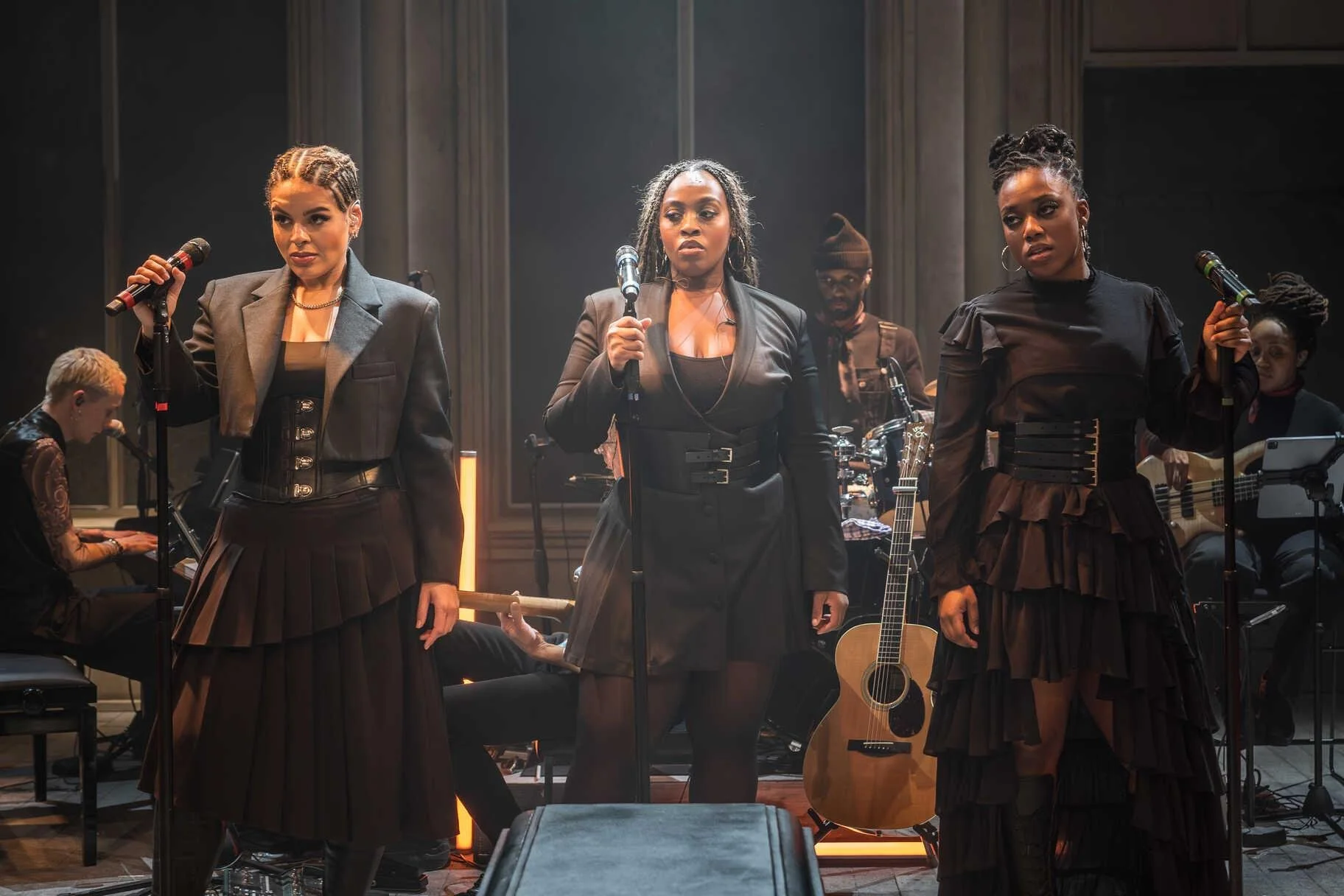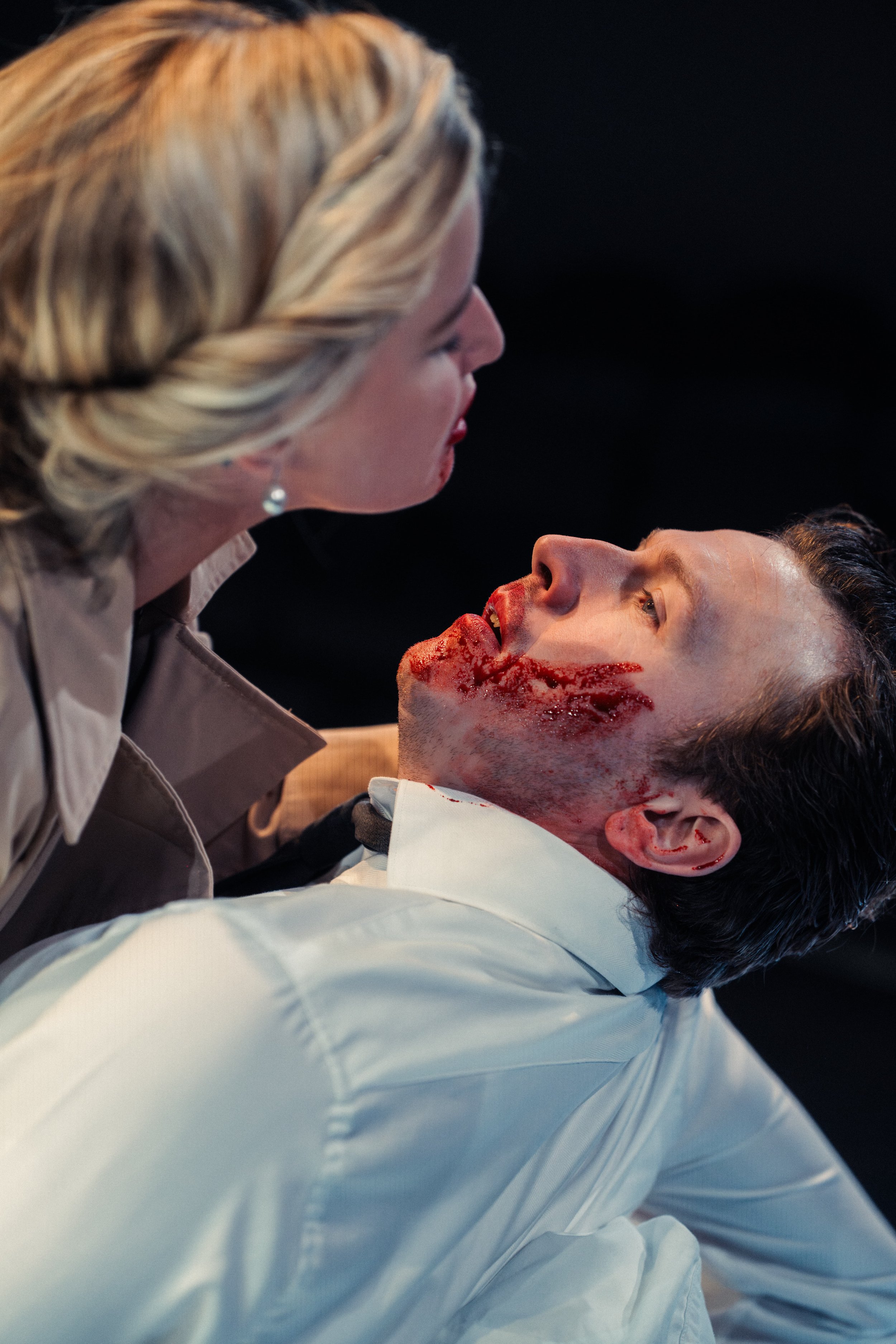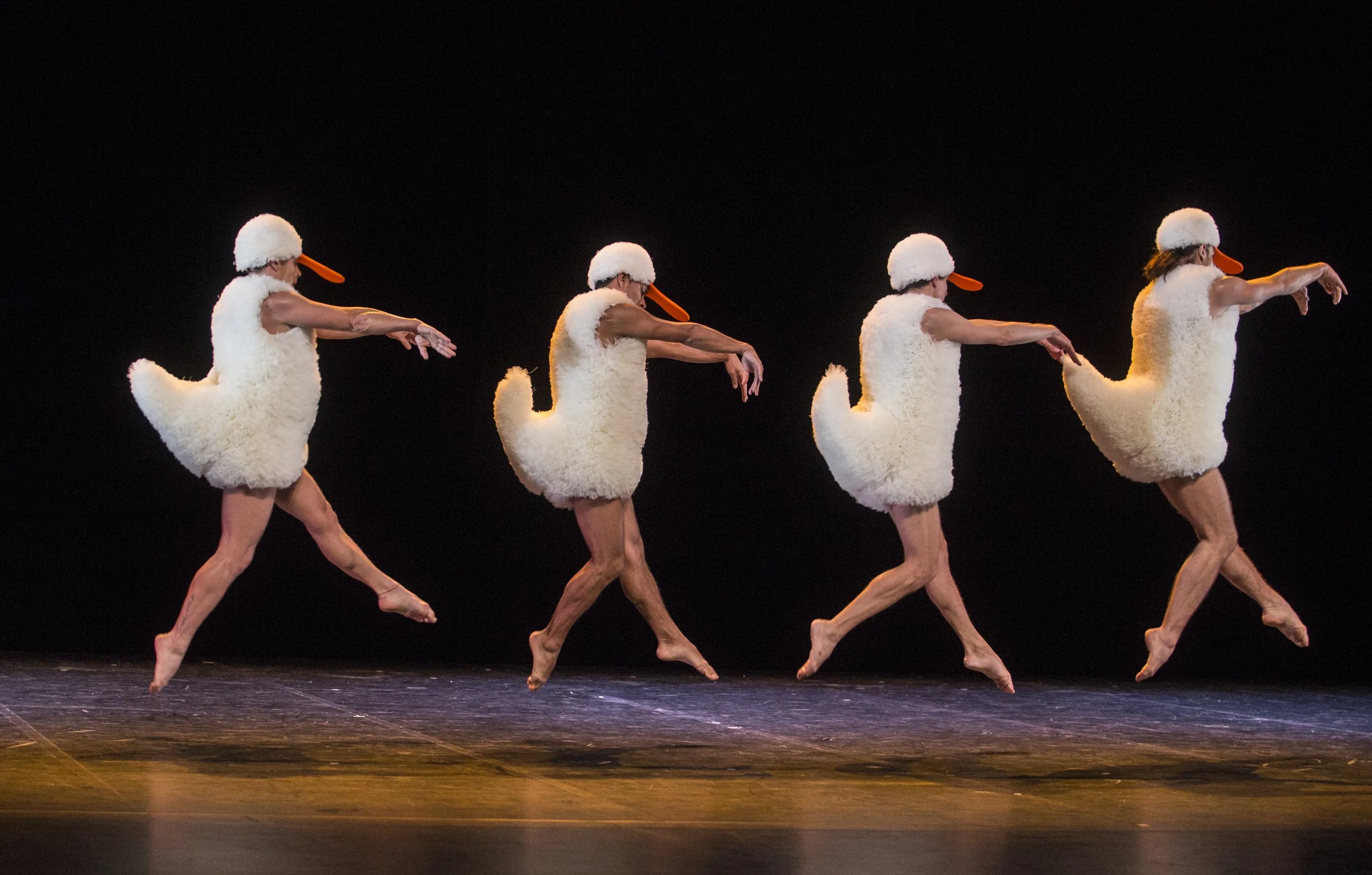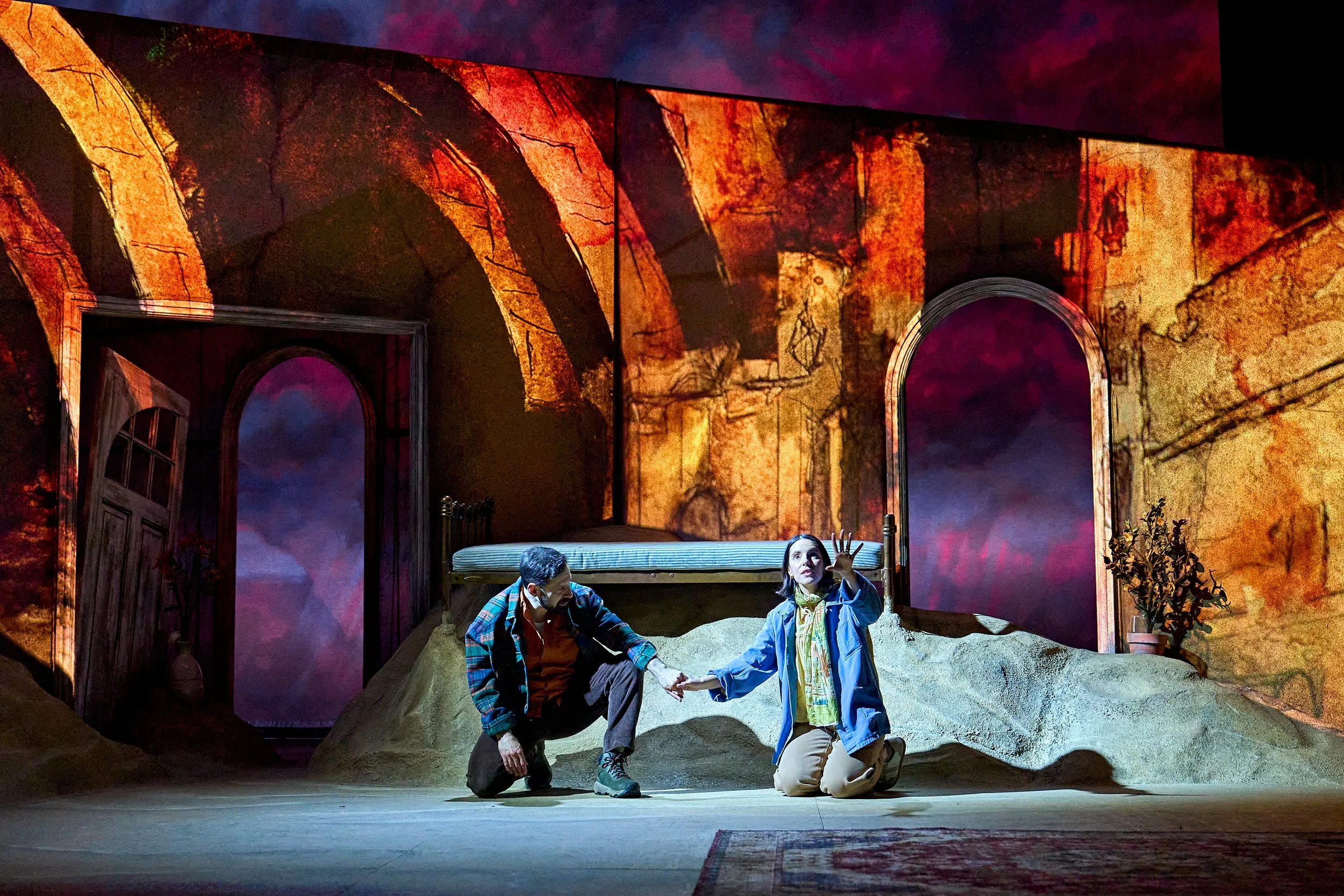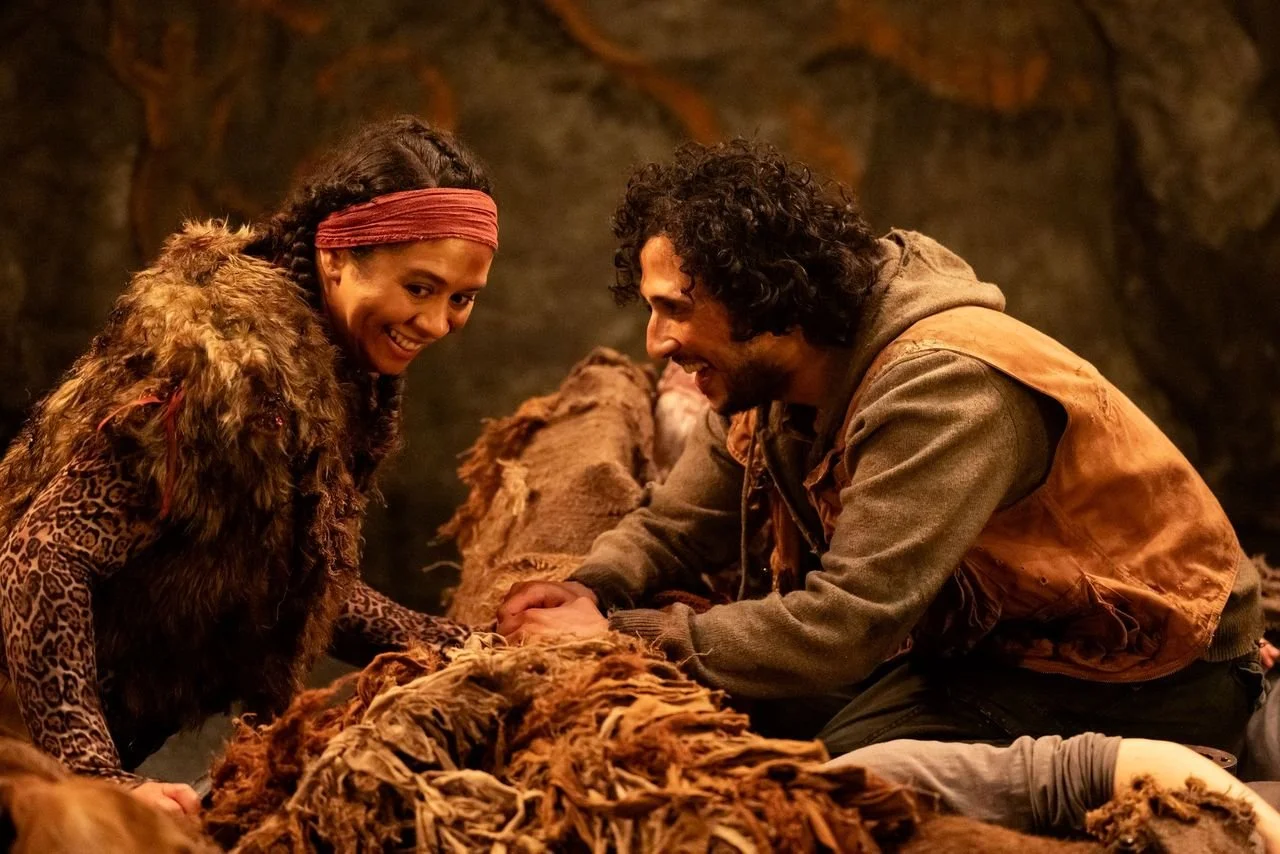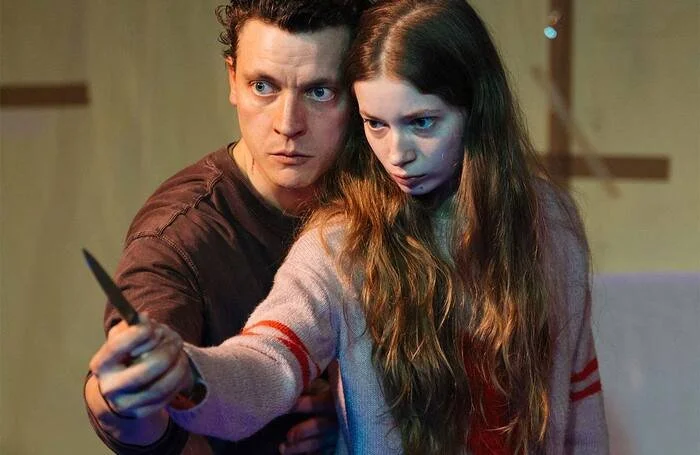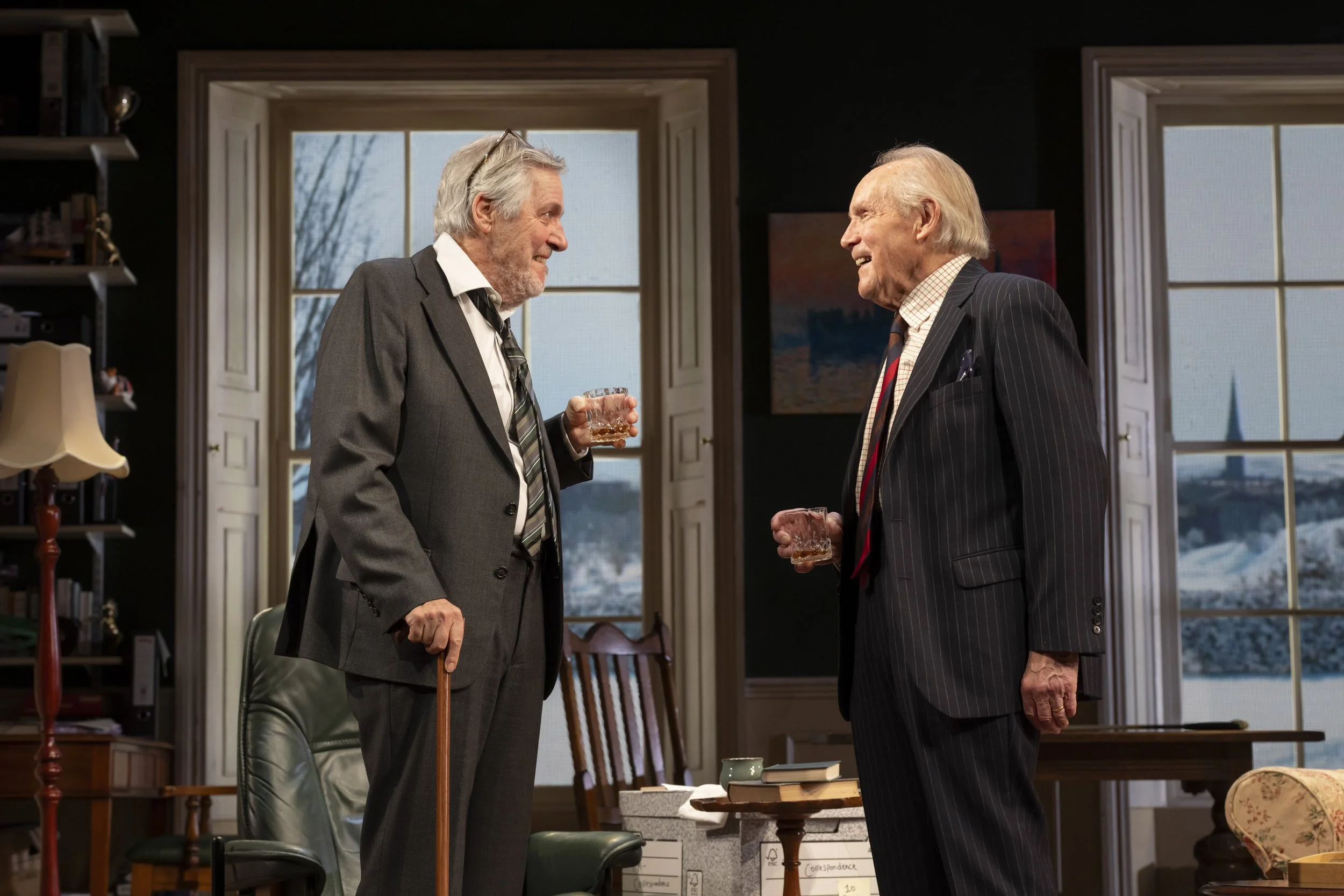Mrs Warren’s Profession at Garrick Theatre Review
Imelda Staunton in Mrs Warren’s Profession. Photo by Johan Persson
Written by Annie for Theatre & Tonic
Disclaimer: Gifted tickets in exchange for an honest review
Returning to the stage, after having just won an Olivier award for her performance in Hello, Dolly last summer, is Imelda Staunton in a new revival of Mrs Warren’s Profession. Written by George Bernard Shaw in 1893, I was keen to see how and why this show was chosen to hit the West End in 2025, given its initially negative response.
Oddly, despite being not far off 150 years since its publication, Bernard Shaw’s play feels as relevant today as it may have back in 1893. We follow Vivie Warren, a young woman ahead of her time, newly graduated from Cambridge, and full of ambition for her life as a career woman. We quickly learn she has had a distant upbringing from her mother, Kitty Warren (Staunton) and waits in anticipation for their reunion.
The play begins lightheartedly, with Vivie sat in a beautifully ostentatious garden (gorgeously designed by Chloe Lamford) you quickly find her enveloped in the stereotypical tropes a woman of the era was subject to. She is treated as you’d expect in each interaction with her male counterparts, yet she remains headstrong and willful to defy societal norms. Her first interaction with Mr Praed (Sid Sagar) where Vivie helps Praed to open a garden chair, is an entertaining challenge to what we’d expect from a piece of this era, and quickly sets the tone that we are in for an unconventional story.
Dominic Cooke’s direction has really delved into the nuances of Bernard Shaw’s script, picking out these little moments such as above to highlight the defiant nature of our Vivie. Bessie Carter plays the role with stunning conviction - her effortless strength and honour for the character make her both loveable and complex.
Vivie’s playful yet loveless relationship with Frank Gardner (Reuben Joseph) is a refreshing scenario, made even more interesting by his pursuit of Mrs Warren despite his intention to propose to Vivie. Very quickly, the play begins to make us question the line between marriage proposals and sexual desires, and how honourable are the male intentions are within the play.
Juxtaposing the lovably loyal Mr Praed, and the naive Frank, we have the stoic and conservative Mr Crofts, Mrs Warren’s close friend, who also takes a shine to Vivie, ignoring their 25-year age difference. It further displays this blurred line of societal places and obligations, and the varying generations’ opinions of what is or isn’t appropriate. Robert Glenister plays the role with great conviction, perfectly embodying the nature of his character, and quickly losing the audience's trust.
Finally, we have the bumbling Rev. Gardner (Kevin Doyle) who, although he seems to be the perfectly placed comedic relief, slowly uncovers he’s as sinful as the rest. All the men surround Vivie, and through the addition of the four male counterparts, we quickly learn that only Vivie is oblivious to a big secret part of her mother’s life.
Despite no verbal references being explicitly made towards Mrs Warren’s profession, we quickly understand her line of work. The refusal to even mention it by name or reference, except her being “in the hotel business” only further presses shame into both Warren and her career, and signifies the scandal it held in 1893, and perhaps eerily still in the 21st century.
Mrs Warren is stunningly portrayed by Imelda Staunton - genuinely one of the greatest actresses of our time. Despite her successes and status, Staunton is never one to try to upstage her fellow cast members - she plays the role in a more nuanced manner - less of a flamboyant caricature, and more of a woman desperately trying to keep up appearances. Her forced RP dialect, frequently slipping into an East End twang, compared to her daughter’s perfectly eloquent tongue, quickly gives the audience insight that not all might be as it seems. Her considered portrayal is a true masterclass in acting.
The revolving stage is surrounded at times by an ominously poignant chorus of women, dressed in Lamford’s gorgeously Victorian costumes, portraying a constant reminder of the basis of the show, and also the ringing shame Vivie feels towards the foundations of her privilege. The women work to slowly strip the stage of its beautiful floristry until we are left with an empty stage, transported to Vivie’s London clerical office. It’s a well considered change, stripping both the stage and Vivie’s ambition, leaving it stark and bare, lost of any beauty or hope.
The final scenes are a battle of pride and honour between mother and daughter, made all the more powerful with Staunton starring alongside her own daughter. The verbal battle challenges each woman’s opinion of a female’s place in society - what it means to be a woman, and what they believe is expected of them to each other. Carter’s headstrong Vivie does not falter from her opinion, and Mrs Warren quickly breaks down, yet also refuses to apologise for her way in the world. It’s an extremely detailed and important conversation which eerily feels far more contemporary and relevant in 2025.
It is so refreshing to see a play so rich in dialogue and challenging themes, amongst the current world of flamboyant staging and concepts, the return of classic theatre is a pure pleasure to watch. A total switch off from the outside world, and a chance to get lost in the script, whilst challenging our social and societal opinions.
‘Mrs Warren’s Profession’ is at the Garrick Theatre until 16th August.
★★★★



